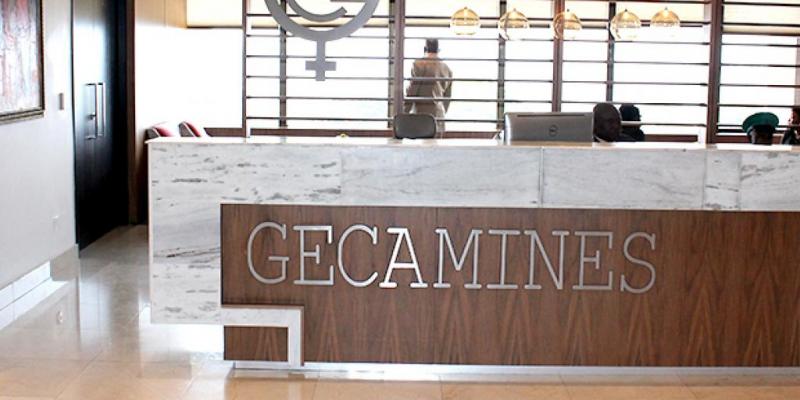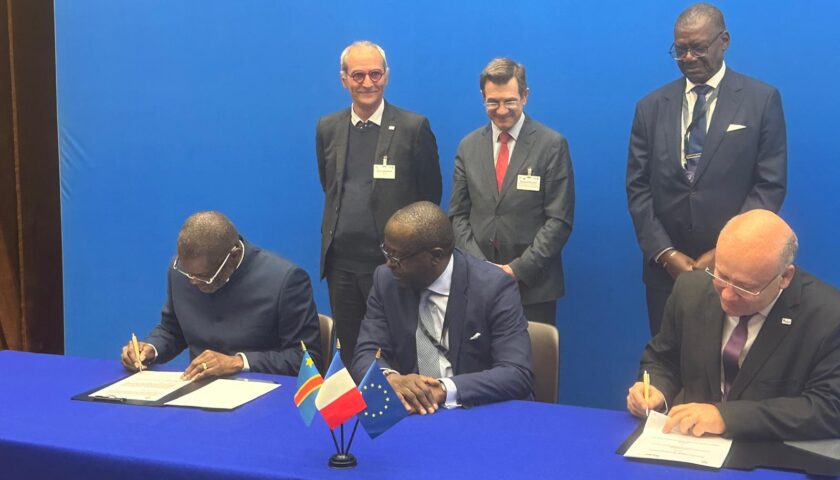Martin Kabwelulu, DRC Mines Minister (LGE & MNM Picture)
By Michael J. Kavanagh
March 26 (Bloomberg) — Democratic Republic of Congo’s mines minister reassured investors after separatists attacked the capital of mineral-rich Katanga province, raising concern among analysts that the region faces increased conflict.
At least 35 people died when more than 245 Kata Katanga militants battled soldiers and police in Lubumbashi on March 23 before surrendering to the United Nations. The government introduced a curfew and some businesses and schools closed early yesterday in the city, home to the offices of some of the biggest mining companies operating in Congo.
“I’m personally reassuring miners that these events are temporary and will be completely put to a halt,” Mines Minister Martin Kabwelulu said by mobile-phone message on March 25. “A psychosis will reign for several days, but that will pass as well.”
After years of conflict and instability, Congo’s mining industry has flourished since 2009, with copper production doubling to about 600,000 metric tons last year, most of it coming from Katanga in the southeast. The Central African country was the eighth-largest producer of the metal in 2012, accounting for 3.4 percent of world output, according to the U.S. Geological Survey. It also produces half of the world’s cobalt, used in rechargeable batteries.
Lubumbashi is a hub for copper and cobalt miners operating in Congo, including Freeport-McMoRan Copper & Gold Inc. and Glencore International Plc. The city of about 1.5 million people, less than 20 miles from the border with Zambia, has largely escaped the violence that plagues most of Congo’s eastern frontier.
Production was unaffected at Glencore projects, according to a company official. Freeport didn’t respond to an e-mailed request for comment.
Investor Concern
Investors are concerned that may be changing, said Jean-Baptiste Bouzard, Africa analyst at Maplecroft, the Bath, England-based risk analysis company.
“The scale of the attack is of particular concern to the business community,” he said by e-mail yesterday. “Although the group was mostly armed with rudimentary weapons and was rapidly suppressed by the security forces, the involvement of an estimated 300 militants demonstrates the Bakata Katanga movement’s capacity to cause large-scale disruption.”
Kata Katanga means cut out Katanga in the Swahili language, while Bakata Katanga means the people who cut out Katanga.
Most attacks by the separatists and other militia, known as Mai Mai, have taken place between the central Katangan towns of Manono, Pweto and Mitwaba, at least 200 miles north of Lubumbashi. The number of displaced people in the region has increased sixfold since January 2012 to 316,000, the UN says.
Secession Movements
While parts of Katanga tried to secede immediately after Congo’s independence from Belgium in 1960, the recent Mai Mai groups grew out of contemporary political and economic circumstances, said Professor Georges Nzongola-Ntalaja, author of The Congo from Leopold to Kabila: A People’s History.
“They are young people with no hope for the future, who have not finished high school, with no opportunities, who can’t find a job,” Nzongola-Ntalaja said in a phone interview from the University of North Carolina at Chapel Hill. “They’re easily recruited into these groups that promise them pie in the sky.”
Fewer than 10 percent of Congolese have formal jobs, according to the World Bank.
An estimated 1,500 children have joined Mai Mai groups in Katanga, according to the UN Children’s Fund. Forty children aged between 10 and 17 were removed from the Kata Katanga ranks after their surrender, Cornelia Walther, Unicef’s spokeswoman in Kinshasa, said by e-mail yesterday.
Do Better
Kabwelulu said the government needs to do better.
“The government must clearly take care of the social needs of the population,” he said. The mines minister said he would “intensify the creation of mining cooperatives,” which would offer more jobs to independent diggers who use pickaxes and shovels to mine ore.
Katangan politics and rivalries between different regional and ethnic groups also fuel conflict, Nzongola-Ntalaja said, particularly as the government plans to increase the number of provinces from 11 to 26. The process, meant to boost the power of local governments, would divide Katanga into four smaller provinces.
“A small group of disgruntled politicians, who are worried that the division of the province of Katanga into four provinces is going to deny them control of the resources,” are supporting the Mai Mai, Nzongola-Ntalaja said. The Kata Katanga members will face trial in Congo’s capital, Kinshasa, according to the government.




